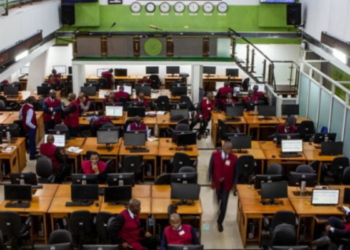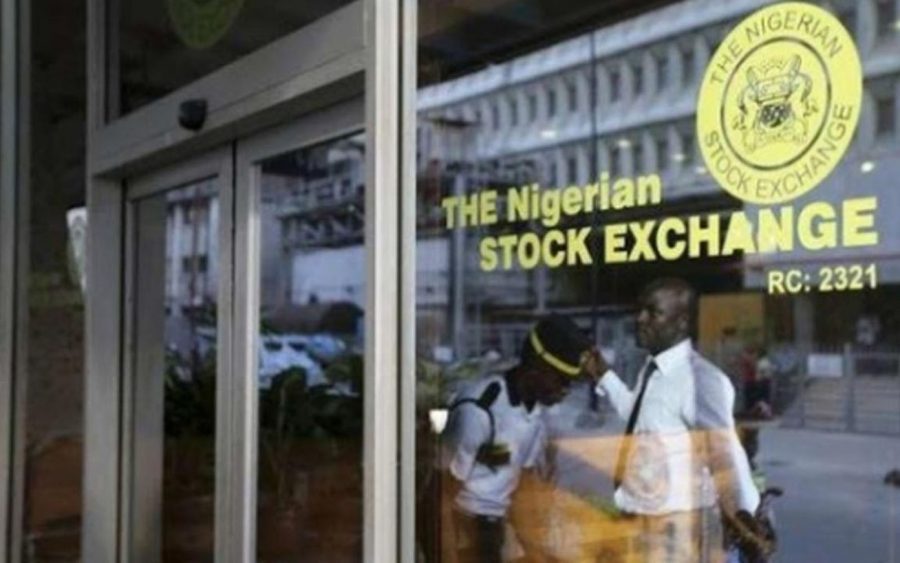Recently, the Nigeria Stock Exchange (NSE) published its Interpretative Guidance to Securities Lending Guidelines. The publication was in furtherance of the Exchange’s “vision for increased stakeholder inclusion in the capital market industry.” Among other things, the Exchange is aiming to include retail investors in its securities lending program by eliciting the participation of retail investors and widening the pool of securities available for lending. One way to achieve this objective is investor education and that is where this article falls into.
What is securities lending?
Securities lending is a process which securities are temporarily transferred from one party (the lender) to another (the borrower). Ordinarily, the lender retains the economic characteristics of the security that is loaned such as the dividends and other corporate action entitlements. As part of the stock lending contract or agreement, the borrower is required to return the borrowed security upon the expiration of an agreed time or when asked to do so by the lender. The borrower pays a fee for the securities borrowed and posting collaterals.
Why engage in securities lending?
One of the major reasons to engage in securities lending is to generate extra income. Rather than letting the security sit in your portfolio for the periods that you do not intend to sell them, you can lend them out for a fee. On the part of the borrower, securities lending or borrowing can be a walk around to consummate a short sell transaction, especially in a market like Nigeria’s where short selling is not permitted. So, if the borrower thinks that the price of a security will fall in future, he or she can borrow it now, sell the borrowed securities and hope to buy it back at a cheaper price and then return it to the lender.
For example, an investor thinks that the price of Access Bank will decline when the bank releases its Q3 financial statement, so the investor decides to borrow 100 shares of Access Bank and sells it at the current price of N9.25, generating a total of N925., assuming that true to expectation, Access Bank releases its Q3 reports and the price falls to N8, the borrower then buys back 100 shares for N800 and returns that to the lender. With that transaction, the borrower made N125, (925 less 800). Depending on the fee charged for the borrowing, the borrower ends up making some gains from the stock lending transaction. In addition to the benefits that accrue to the parties in securities lending transactions, the program has some beneficial effects on the broad stock market.

[READ MORE: Why you need international stocks in your portfolio]
Benefits of stock lending to the stock market
Securities lending benefits the stock market in that the program increases market liquidity leading to the optimal functioning of the stock market. Securities lending also increases the efficiency of market pricing which in turn lowers overall cost for investors.
Securities lending process
To make the lending process smooth and seamless, the process is usually facilitated with financial institutions as intermediaries between the borrower and the lender. They are the lending or borrowing agents. Here are the steps that are involved in a typical securities lending transaction.
Step One: Securities Lending Initiation: The process begins with the borrower contacting a prospective lender or their lending agent (intermediary) asking for the availability of a particular security for lending. If the lending agent or prospective lender responds positively to the enquiry, the next step, negotiation of stock lending terms, begins.
Step Two: Negotiation of Stock Lending Terms: The second step in securities lending is negotiation of terms covering issues relating to cash and/or non-cash collateral, loan duration, dividends and corporate actions, and the fees payable.
Step Three: Delivery of Collateral: Having agreed on the terms, the borrower then delivers the agreed-upon collateral to the lending agent.
Step Four: Delivery of Securities: Having “received” the collateral, the lender delivers the agreed upon securities to the agent or the intermediary.
Step Five: Investment of Collateral: If the collateral posted by the borrower is a cash collateral, it is then placed in a short-term investment. This reinvestment step does not take place if the collateral is non cash.
Step Six; Daily Mark to Market Calculation: Because the value of the securities loaned varies daily according to market conditions, the lender or his agent, needs to be able to monitor the daily value of the securities in order to find out if the collateral posted remains adequate or insufficient. Where the collateral becomes inadequate because the value of the loaned securities has increased, a collateral call is placed on the borrower, at which point the borrower is required to add to the collateral.
Step Seven: Return of Borrowed Securities: At the end of the duration of the contract, or when called by the lender, the borrower returns the borrowed securities through the lending agent.
Step Eight: Return of Collateral: The cash collateral plus the interest or rebate is the returned to the borrower and the loan closed.
Risks in securities lending
We live in a world of risk and risk is an important component of investing. Risk is also present in securities lending and to understand securities lending, you also need to know the risks involved. The first risk in securities lending is that the borrower might fail to return the securities. Though this is a risk, it is mitigated by the posting of collateral; however, if the collateral is not adequate as at the time of “default”, that becomes a risk. The is the major reason why securities should be marked to market daily and collateral calls made whenever the collateral falls short of the loaned securities.
A risk arises for the borrower if the borrowed securities rally in such a way that the borrower will have to spend more than he realized from the sales, to buy the “borrowed and sold” securities that need to be returned. This could cause the inability of the borrower to return the security, which then becomes a risk for the lender. Another risk is that of not being able to retrieve the invested collateral because the financial institution with whom it is invested is unable to pay. This is a rare type of risk, however.
[READ ALSO: Understanding price multiples and how to use them for stock selection]
Conclusion
Securities lending is a step in the right direction for the Nigerian market, as it will act as a means to carry out “short sell” in the market and improve market liquidity and efficiency. Investors should get good understanding of the process and what is involved before diving in.























Insightful